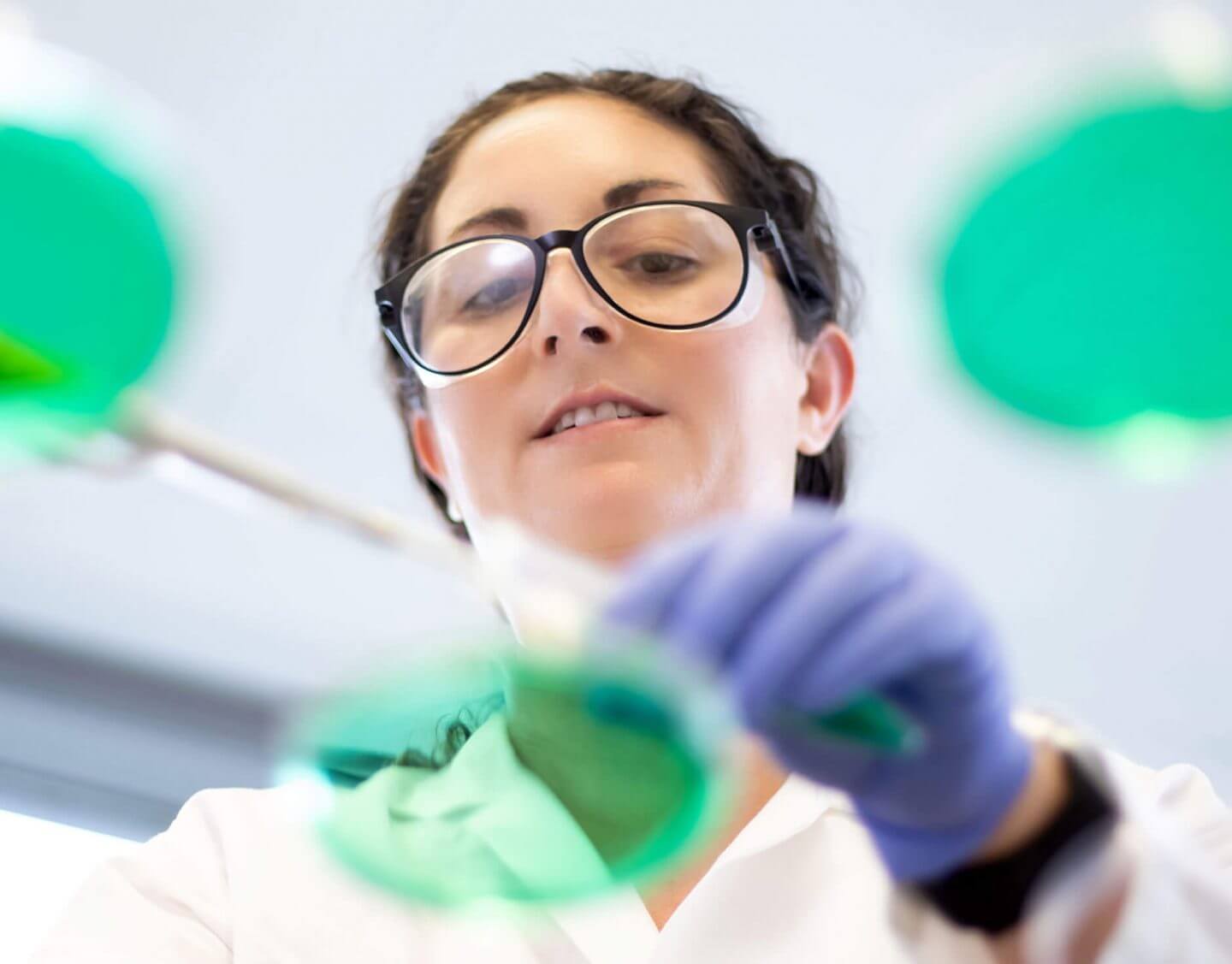Parkinson’s Disease
We’re dedicating the best technology and scientific talent to uncovering ways to treat—and someday prevent—this devastating disease.
There is no cure for Parkinson’s disease…yet.
Get CuriousAt Scripps Research, we’re converting knowledge into power to turn the tables on Parkinson’s.
Few treatment options exist for Parkinson’s disease, a serious neurological disorder that affects up to 10 million people worldwide. We’re committed to changing that. By integrating our excellence in neuroscience, cell biology and drug discovery, we are unraveling the complexities of the brain, creating new technologies to study the nervous system and developing novel therapies for Parkinson’s and other debilitating neurological disorders.
In Parkinson’s disease, dopamine-producing nerve cells in the brain die off. The loss of dopamine leads to issues with movement and a range of other symptoms that worsen over time, seriously disrupting life for patients and their families. Scripps Research scientists are delving deeply into what goes wrong in these brain cells and are making rapid progress in explaining the genetic and molecular causes of the disease.
As we expand our scientific understanding of Parkinson’s, we’re paving the way for new medical treatments and preventative approaches. Scripps Research uniquely blends foundational biomedical research with drug development capabilities, enabling us to rapidly translate our discoveries into experimental therapies.
With every discovery, we’re building intelligence that takes us a step closer to highly effective treatments for Parkinson’s. The brain is the most complex organ in the body, and diseases of the brain require the most talented, committed scientists. That’s what Scripps Research provides.

Exploring Diverse Treatments for Parkinson’s
-
The Missing Link
After discovering the link between abnormal protein clumps and nerve cell damage, researchers are customizing new therapeutics.
-
Improved Motor Function
In a clinical trial, our drug that suppresses brain inflammation is improving motor function in patients with Parkinson’s.
-
Restore Metabolism, Protect Neurons
We have also identified—and are advancing—compounds that protect nerves by restoring healthy metabolism to cells.
-
Immune System Assistance
Scripps Research scientists are finding innovative ways to modify the immune system to effectively treat Parkinson’s.